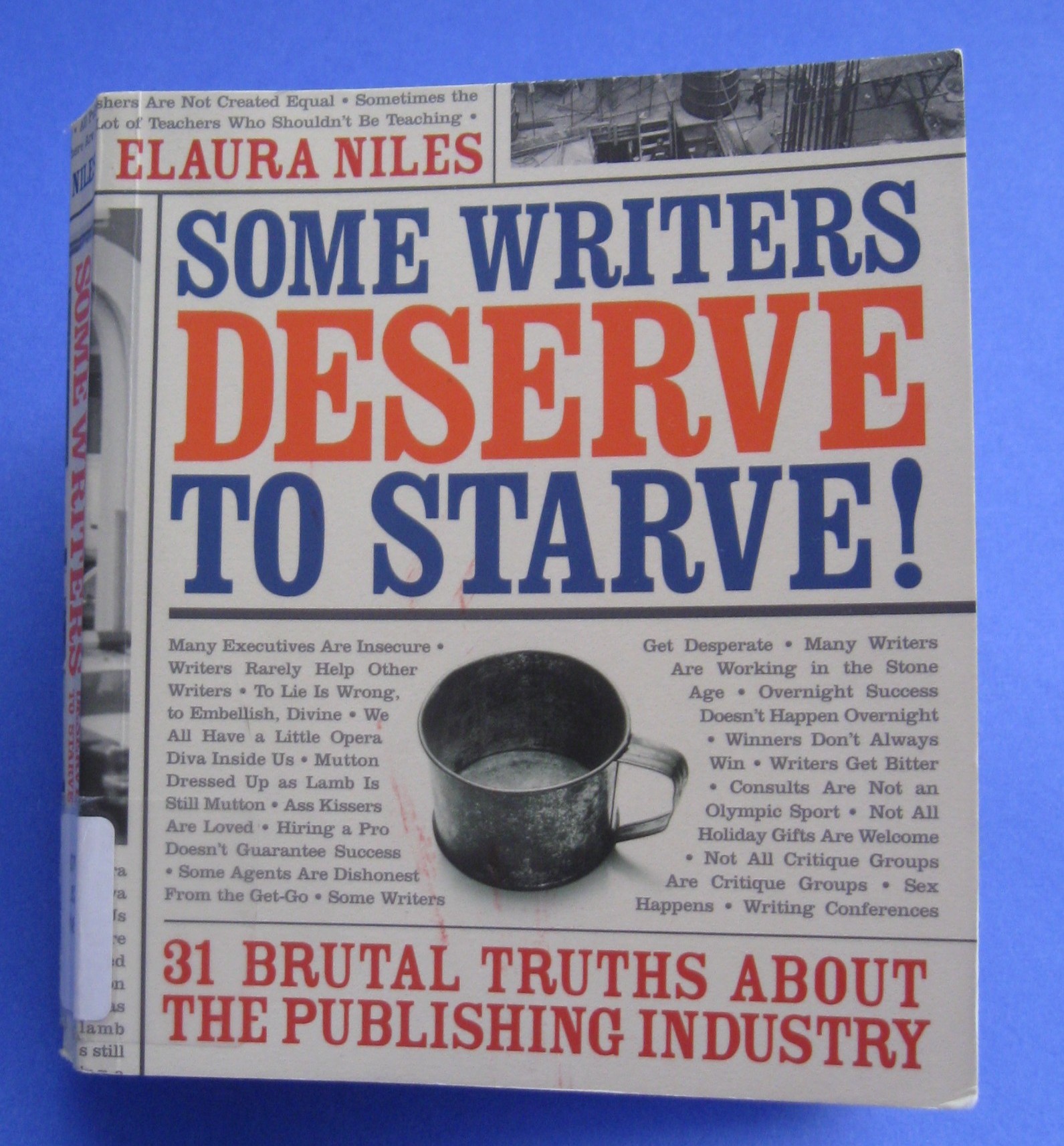Okay, I'm exaggerating here. Perhaps even grossly.
But maybe it's more accurate to say, publishers need writing, not writers. And to a degree, editors enjoy terrific relationships with their authors, the big sellers and the dogs included. I have several editors with at least three separate publishers at present and I consider them friends. Same goes for my agent (we laugh at our stupid ass jokes more than we talk actual business. Life is short after all).
But the point here is that publishing houses, especially the big ones, need content and lots of it, that will drive sales (only about 10% of the titles make 100% of the profits). They don't need writers per se. In fact, when the day comes where writers, like waiters at McDonald's who are slowly being phased out for the cheaper robotic equivalent, aren't required to produce high quality literature and thrillers, there will be quite a few of us trying to land a new occupation.
Or will we?
I've been preaching for a quite a while now that writers, like stockholders, need to diversify. They need to tap into many different forms of publishing, including traditional and indie. Therefore, when one opportunity dies because of any number of reasons, the writer can then rely on his income from another source. This is what the hybrid model is all about.
I learned the hard way. Back in the late 90's and early 2000s I went all in with one publisher while cutting ties with the rest of my writing and publishing venues, and when the publisher went through a consolidation and kicked a bunch of editors and writers out into the street, I suddenly found myself starting over. The publisher really didn't care very much about me as a writer, or a human being with a family and little kids. The publisher already got its writing...its content...and while I, the writer, was kicked to the curb, the publisher hung onto the writing, until many years later when, through careful and expensive negotiations, I was able to yank the rights back. Thank God, because the books I'm talking about would go on to sell a few hundred thousand copies under new management.
Publishers may not actually hate writers, but no one is going to put the tender loving care into a manuscript like you the writer can. No one is going to push your book in the marketplace like you will. It's probably more the case that an overburdened publisher will choose to ignore it, or toss it up against the wall to see if it sticks. Only you can take control of your own work and promote it to the best of your ability. Which is why every writer should publish a significant amount of titles under an indie label.
Going indie was something I resisted for a long time. But when I started realizing the financial results that can come from publishing just a few indie titles, I began to change my mind. Today I have maybe eight novels and some short stories published under my label, Bear Media/Bear Pulp, but I hope to double that over the course of the next twelve months, doubling or even tripling my monthly take in the process. Sure, I'm still working with publishers (I'm currently in contract negotiations for two books). But I always keep in mind the fact that the publishers are interested in the content, not the man.
Like they say in the Godfather, it's nothing personal, it's just business.
 |
| Tessio got fitted for a pair of concrete shoes. But it was purely business. |
But that's all the more reason to go hybrid, to build up a personal list of books alongside your traditional titles. A couple of days ago, a writing colleague asked me what I foresee for the next five years of publishing. I told him, I see many more books being published by many more writers, and that discoverability will be the key. I also envision traditional publishing giving way to more and more indies who build up a significant subscriber list and who eventually will sell their books primarily out of their own website, which will act as their own personal bookstore. Many authors are doing this now, and even selling works from other authors as well.
Hockey great Wayne Gretzky once said, the secret to greatness isn't in knowing where the puck is on the ice at any given moment, but where the puck is going to be. The same can be said of the writing and publishing game.
WWW.VINCENTZANDRI.COM
By the way, I'll be speaking about this very topic at this years Writer's Digest Conference in NYC on August 11-14. Stop by and introduce yourself.


engrossing! great read as always.
ReplyDeleteThanks Elyse...
Delete